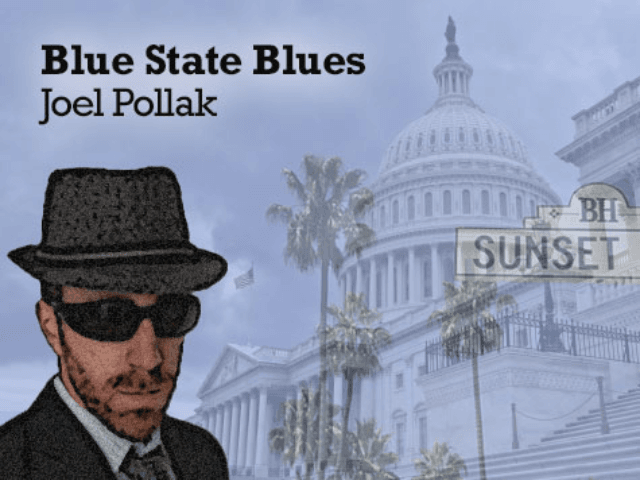Republican Greg Gianforte defied media expectations by winning Thursday’s special election to the U.S. House of Representatives in Montana.
The race had been neck-and-neck, and then Gianforte allegedly assaulted a reporter. It seemed his chances were doomed.
But if callers to talk radio were any indication, some Montanans may have voted for the Republican precisely because he had “body-slammed” a reporter. That is how much the media are disliked.
Leaving aside, for the moment, questions of what that says about the increasing coarseness of our democracy, the GOP win in Montana also illustrates something fundamental about the Democratic Party: it cannot conjure a reason for people to vote for it.
Unless you are a member of a minority that has been indoctrinated to fear Republicans in general and Trump in particular, or a coddled member of the bourgeois “Resistance,” the Democrats offer nothing.
The conventional wisdom is that the Republicans are in deep trouble in 2018 — at least in the House (the Democrats must defend 25 seats in the Senate against the Republicans’ eight, and ten of those Democratic seats are in states Trump won in 2016). That fear is one reason House Republicans cannot unite around the Trump agenda.
But after Montana, it becomes reasonable to wonder whether Democrats are actually in danger in 2018, for five reasons.
- Nancy Pelosi. The former Speaker ought to have resigned in 2010, after she led her party to a historic defeat. But she clung to power within her party, crushing her rivals and stifling dissent. She remains deeply unpopular with the country as a whole, and has done nothing to improve her image. She offers sharp partisan jabs, but few new ideas. She is six years older than Trump — whom Democrats already mock for his age. She will unite Republican voters.
- Keith Ellison. The Democrats balked at electing a radical leftist dogged by allegations of antisemitism as the new chair of the Democratic National Committee. But they appointed him as deputy chair anyway. Together with the foul-mouthed chair, Tom Perez, Ellison represents an increasingly radical, militant, and unhinged Democratic Party — one that has no clue or care about how to recover the working-class voters it lost to Trump in 2016.
- Impeachment talk. The Russia conspiracy theory motivates Democratic donors and activists. But as it becomes more shrill, and prods more Democrats (and journalists) to talk about impeachment, it risks motivating Republican voters as well. Trump’s voters did not take their country back in 2016 only to have the Washington, New York and California elites snatch it away again on the basis of nonsense. It’s not about The Donald; it’s about democracy.
- Bernie-crat backlash. There is still plenty of unfinished business from 2016 among Democrats. Bernie Sanders supporters still feel the party establishmentis thwarting them at every turn — whether in elections for the California Democratic Party leadership, or in Montana, where Bernie-crats who worked hard for Rob Quist in Montana feel the party did not do enough to help. Those activists might prefer to sit out 2018 and wait for a change in leadership.
- The 2010 map. For all his political savvy, Barack Obama’s biggest mistake was passing Obamacare before the 2010 census. That ensured that the political backlash not only affected federal races, but state races as well. When congressional districts were redrawn, Republicans held an advantage everywhere but Illinois and California. In 2018, Democrats will be competing on that unfavorable map, with their enthusiasm concentrated in deep blue areas.
That is not to say that the 2018 midterm elections will not be close. Democrats only need to win 24 seats to hand Pelosi the Speaker’s gavel. They may pick up seven seats in California alone, where Hillary Clinton won in seven districts currently represented by Republicans. They can probably find a dozen or so similar races elsewhere. The special election in Georgia next month is looking good for Democrats at the moment, and could give them hope.
But right now, the Democrats have no policy message. They are simply anti-Trump, and find themselves carried away by the vehemence of their anger and frustration. They offer nothing to Republicans who might otherwise be tempted to send a message to the administration — whether conservatives who want faster swamp-draining, or NeverTrumpers looking for redemption.
Unless they make changes soon, the Democrats may miss their chance.
Joel B. Pollak is Senior Editor-at-Large at Breitbart News. He was named one of the “most influential” people in news media in 2016. He is the co-author of How Trump Won: The Inside Story of a Revolution, is available from Regnery. Follow him on Twitter at @joelpollak.

COMMENTS
Please let us know if you're having issues with commenting.